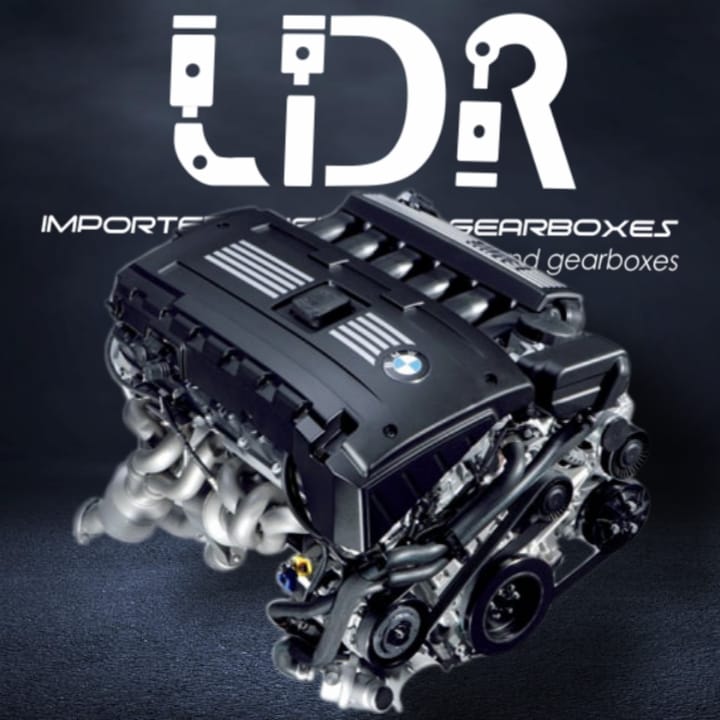Essential Considerations for Choosing the most effective Engine for Your Demands
In the world of picking the excellent engine to satisfy your demands, numerous vital variables demand meticulous factor to consider to make sure ideal performance and performance. From the nuanced balance in between power and performance to the often-overlooked facets of maintenance and solution requirements, each aspect plays a pivotal duty in determining one of the most suitable engine for your details needs. As the intricacy of engine technologies remains to evolve, discerning one of the most fitting choice necessitates a deep understanding of the interplay in between various factors to consider. By discovering the intricate web of variables that underpin this decision-making process, a more clear course arises towards choosing an engine that not just meets however exceeds your expectations.
Power and Performance
When reviewing engines for optimal performance, it is vital to focus on both power result and performance. Power result gauges the ability of an engine to generate energy, which directly impacts its efficiency. A high power result is crucial for requiring tasks such as durable applications or high-speed needs. It guarantees that the engine can take care of the work efficiently and successfully. Nonetheless, power alone is not sufficient; performance plays a substantial role in identifying the general efficiency of an engine. Performance describes exactly how well the engine transforms fuel into usable energy. A more efficient engine will certainly provide far better gas mileage, reduced exhausts, and lowered operating expenses. Striking the best equilibrium in between power outcome and effectiveness is crucial to selecting an engine that meets your certain demands. When making this decision, it is crucial to think about factors such as the planned use of the engine, ecological impact, and lasting price ramifications. By carefully reviewing both power and effectiveness, you can pick an engine that delivers optimum performance and fulfills your needs effectively.
Fuel Effectiveness and Economic Situation
In the realm of engine option, the consideration of gas performance and economy holds critical significance. Fuel performance refers to the engine's capability to transform gas into energy with very little waste, straight affecting operating expense and ecological sustainability. bmw 318ti. When picking an engine, reviewing its fuel economy is essential to establish long-term cost savings and environmental effect. Engines with greater gas effectiveness not just decrease gas expenditures however additionally reduce carbon discharges, adding to a greener operation.

Compatibility and Application
Considering the fuel performance and economic situation of an engine, the next important facet to address is its compatibility and application within specific operational contexts. Compatibility describes just how well the engine integrates with the general system or tools it powers. It involves elements such as physical dimensions, placing options, electrical user interfaces, and control systems. Guaranteeing compatibility is important to avoid problems such as overheating, vibrations, or power imbalances (bmw 318ti).
Different engines are created for certain functions, whether it be industrial equipment, marine vessels, automobiles, or power generators. Comprehending the intended application enables for the selection of an engine that can supply the necessary power outcome, torque, and functional characteristics.
Maintenance and Solution Demands
Maintenance and solution requirements check out this site play a critical role in guaranteeing the durability and optimum efficiency of an engine. Routine upkeep is necessary to avoid malfunctions, prolong the life expectancy of the engine, and preserve its effectiveness. When picking an engine, it is necessary to consider the producer's advised maintenance routine and the accessibility of service facilities or certified service technicians.
Aspects such as the frequency of oil changes, filter substitutes, and overall assessments can substantially affect the engine's efficiency. Some engines may require more regular servicing based upon their design and usage, while others might have longer periods between upkeep checks. It is important to comply with these solution needs to stay clear of expensive repair work and unexpected downtime.

Price and Budget Factors To Consider
When choosing an engine for a certain application,Budget restraints commonly play a considerable duty in the decision-making procedure. When considering the expense and budget implications of choosing an engine, it is important to analyze not only the initial purchase cost yet additionally the long-term costs connected with maintenance, fuel usage, and prospective upgrades or repairs. It is essential to strike a balance between the in advance price of the engine and its general lifecycle expenses to guarantee that the picked engine continues to be monetarily sustainable throughout its operational life-span.
Elements such as fuel efficiency, reliability, and sturdiness can directly impact the total expense of ownership of an engine. While an extra pricey engine might link have greater ahead of time costs, it can potentially cause lower maintenance and fuel expenses in time, thus using better worth over time. In addition, thinking about the schedule and expense of extra parts, along with the convenience of upkeep and solution, can help protect against unanticipated financial strain in the future. By very carefully assessing these expense and budget factors to consider, you can make an informed choice that lines up with your economic restrictions and functional demands.
Final Thought

Gas performance refers to the engine's capability to transform fuel right into power with marginal waste, i thought about this directly influencing operating expenses and ecological sustainability.Variables affecting gas performance consist of engine design, combustion effectiveness, and total efficiency optimization. Furthermore, selecting the proper gas type and grade as advised by the engine producer can better enhance performance and lengthen engine life-span.
Engines with excellent service functions and easily available components can minimize maintenance expenses and decrease the time the engine is out of operation - bmw 318ti. It is critical to strike an equilibrium between the upfront cost of the engine and its overall lifecycle prices to make certain that the picked engine remains economically lasting throughout its operational life-span